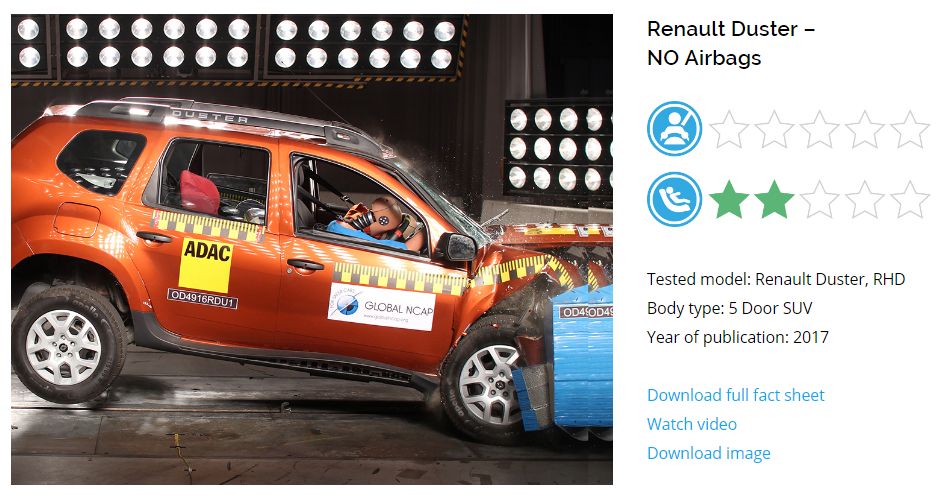
Bhubaneswar: At least 400 fatal road accidents happen in India every day, and that’s more than double of developed nations such as the US.
Did you know that during a 2017 test, conducted by the premier safety rating agency NCAP in the UK, most of the popular cars such as Maruti Alto, Renault Kwid, Hyundai Eon and the even expensive Renault Duster (without airbags variant) received zero stars in the crash test that is done at 40mph (=64kmph)?
Industry experts suggest airbags, anti-lock braking system (ABS), seatbelts, and a good body structure are the basic requirements to make cars safe. The variants of the cars that had airbags received an immediate higher rating in the same test carried by NCAP. As a thumb rule, more the number of airbags, the safer the car is.
While airbags and ABS can’t be added to cars in the aftermarket, all cars in India come equipped with seat belts all around.
According to a survey conducted by Maruti Suzuki and Kantar Group (Millard Brown and IMRB), seat belt usage in India is as low as 25 % among passenger vehicle users. In 2016, as many as 5,638 people died in India only because seat belts were not used, as per the data from the Ministry of Road Transport and Highways.
In the same survey, it was found out that only 4 % of the respondents wore seat belts at the rear. The survey also highlights that most don’t wear rear seat belts because the 1989 law doesn’t mandate it as of now. According to the survey, 27% said it hampers their image, 25% said it ruins their clothes.

A research in the UK informed that seatbelts at the front reduce the risk of fatal injury to occupants by 45%, the risk of moderate-to-critical injury by 50 % and rear seat belts reduce the chances of reducing fatalities by 73% in vans and SUVs.
In 2014, Union Health and Family Welfare Minister Dr Harsh Vardhan had stated that his late colleague and politician Gopinath Munde, could have lived had he been wearing the seat belt.

In a report in the All Star, it states that when unrestrained in a crash even at speeds less than 50 kmph, a rear passenger will hit the front seat and anyone in it with a force that’s around 30 and 60 times his/her own weight. The Insurance Institute for Highway Safety, US says that in 35 mph impact, an unbuckled rear passenger can push the driver in the front into the airbag and steering wheel.
It is expected that based on the lines of Global NCAP, India will be upgrading its vehicle safety norms soon. The Bharat New Vehicle Safety Assessment Program (BNVSAP) which was expected to start in late 2017, hasn’t seen the light of the day till now. Once enforced, dual airbags and ABS are expected to come as standard on all cars which is something most manufacturers such as Maruti, Hyundai, Volkswagen, Ford have started implementing on their cars. Till then, buckle up!



